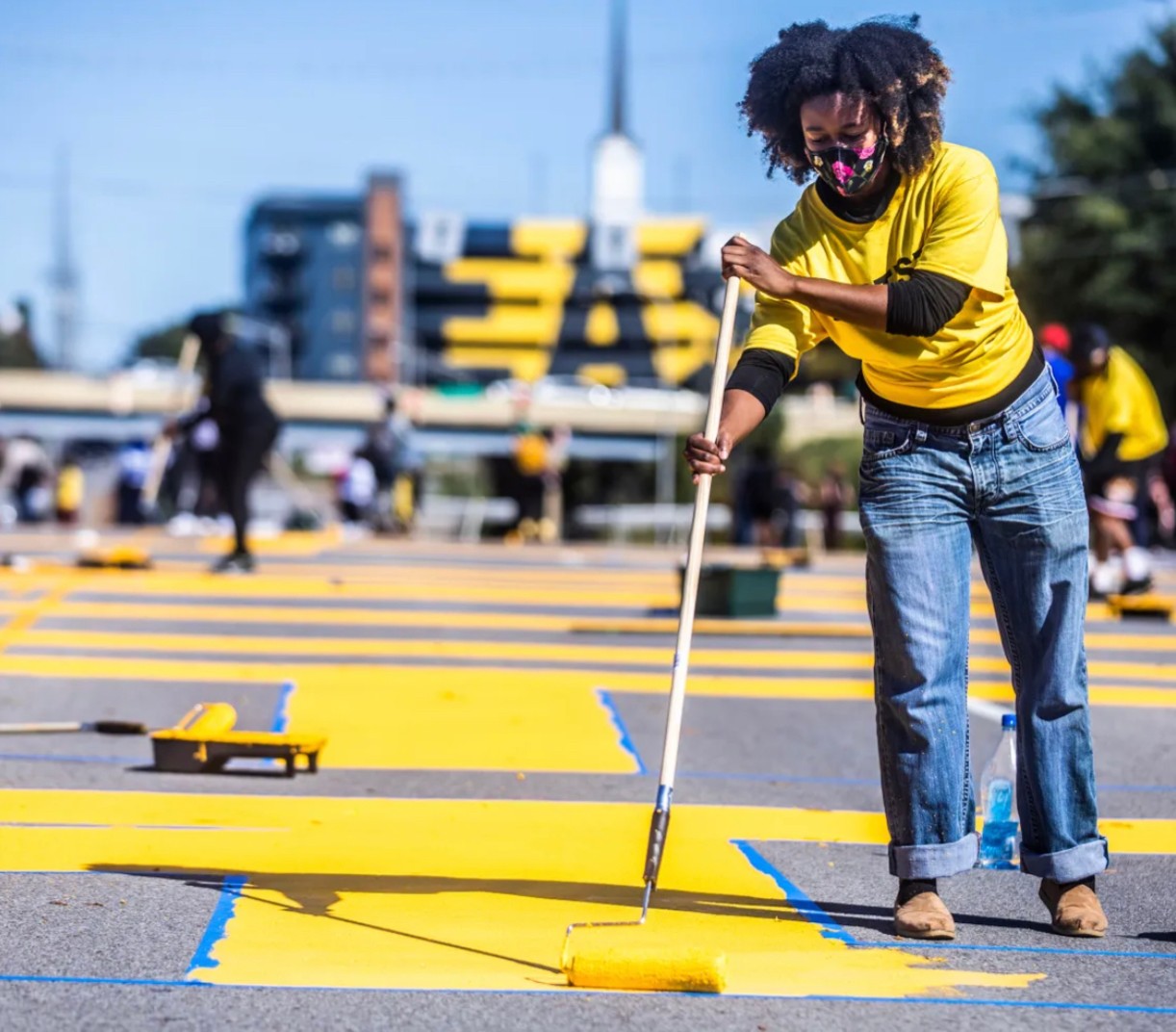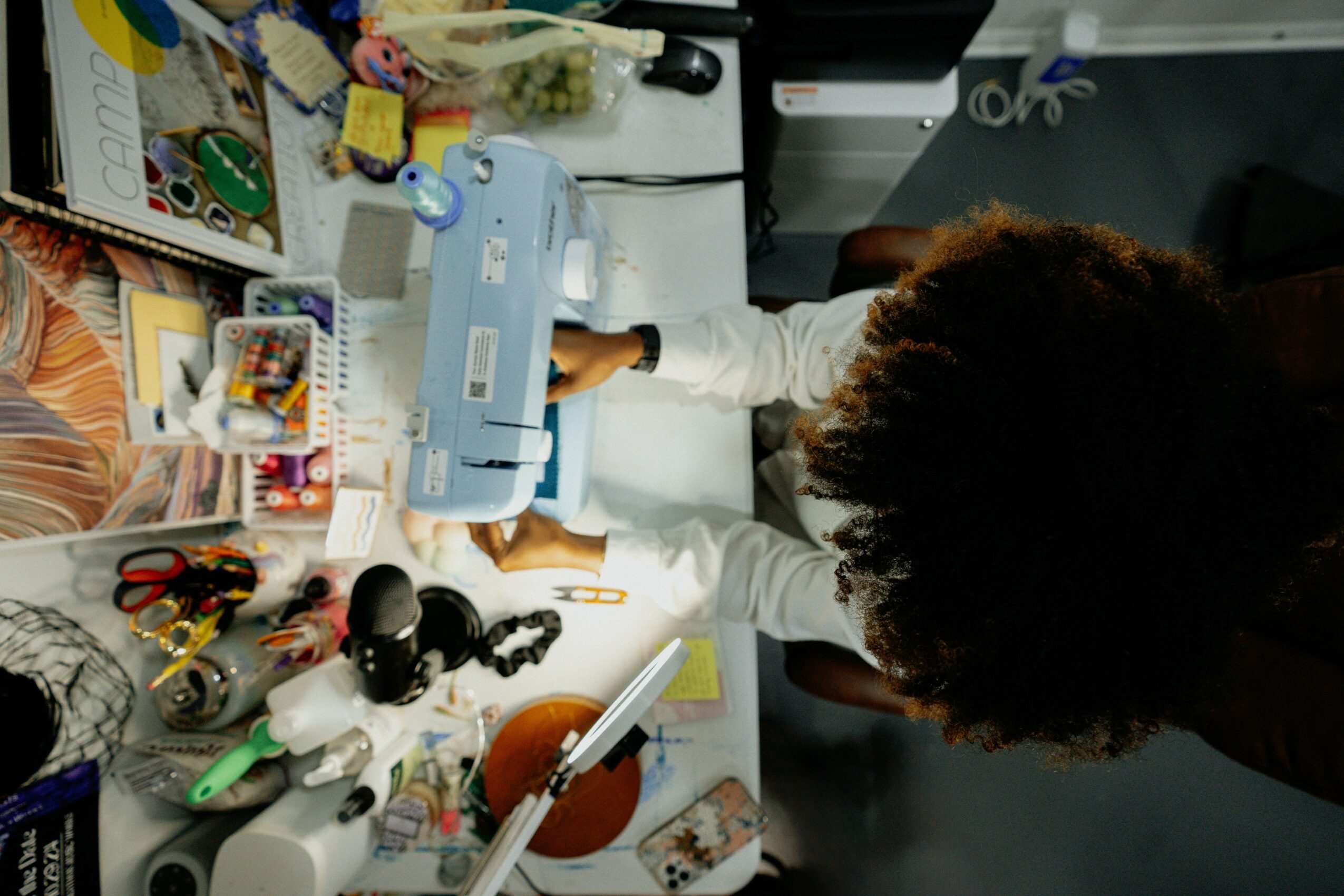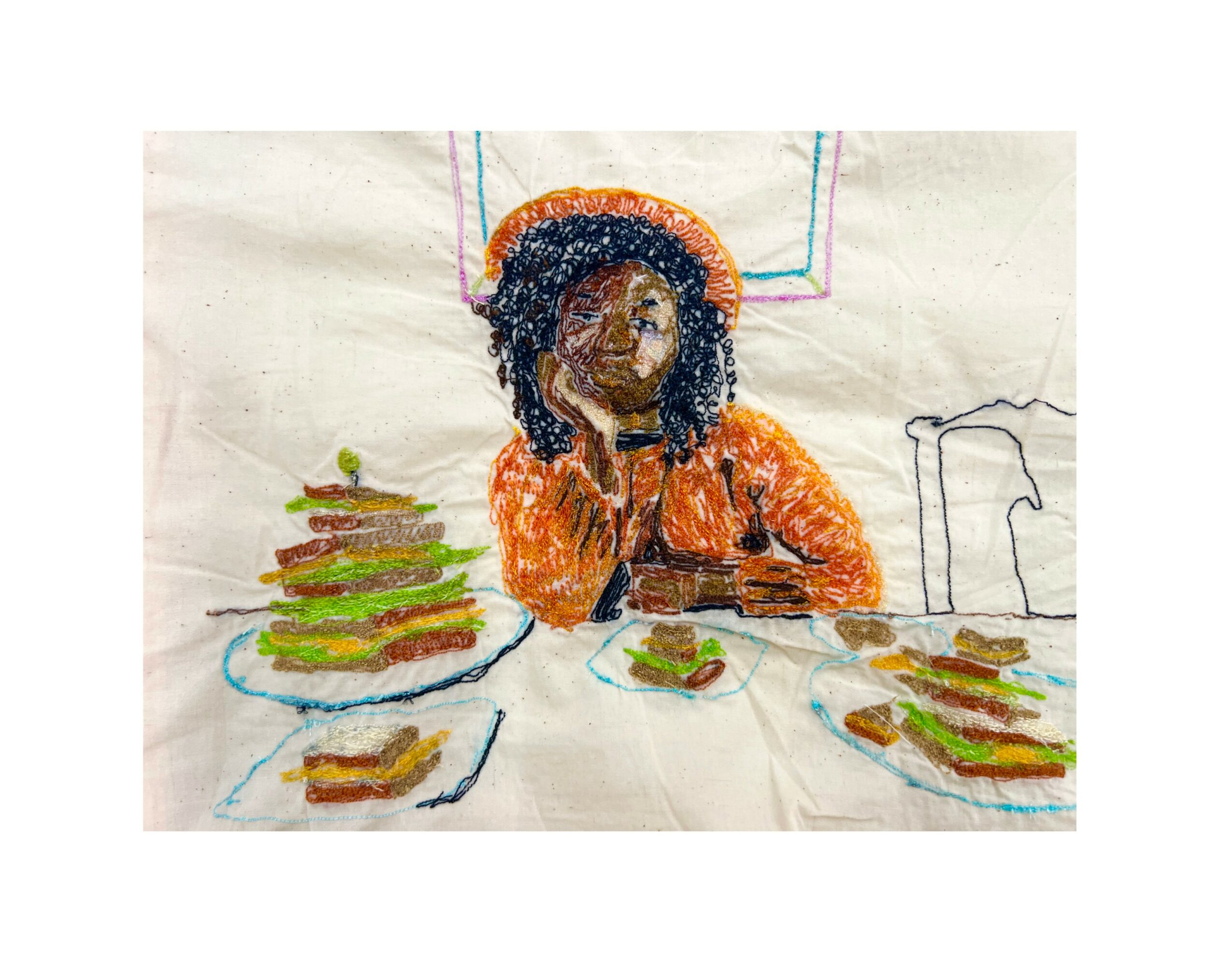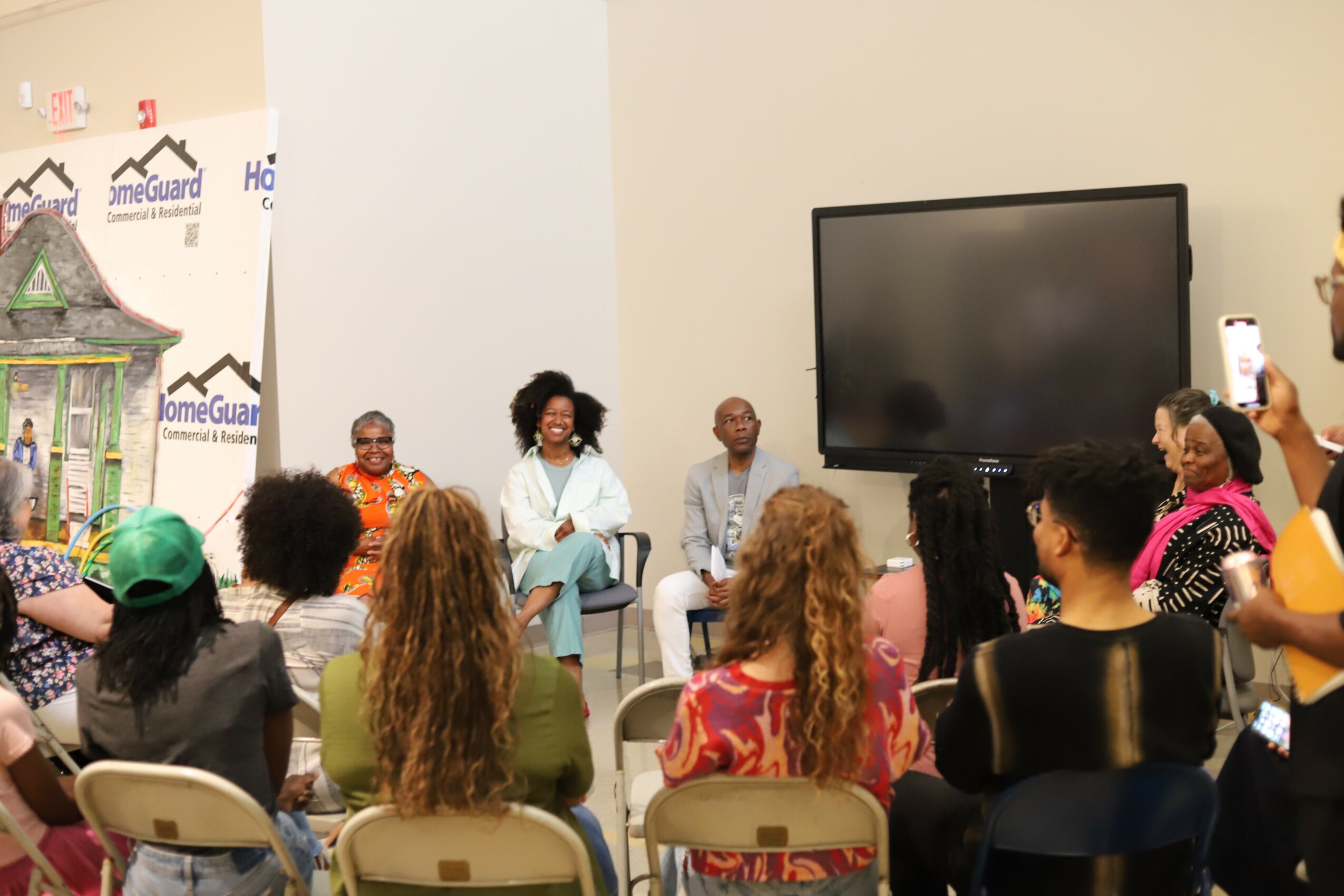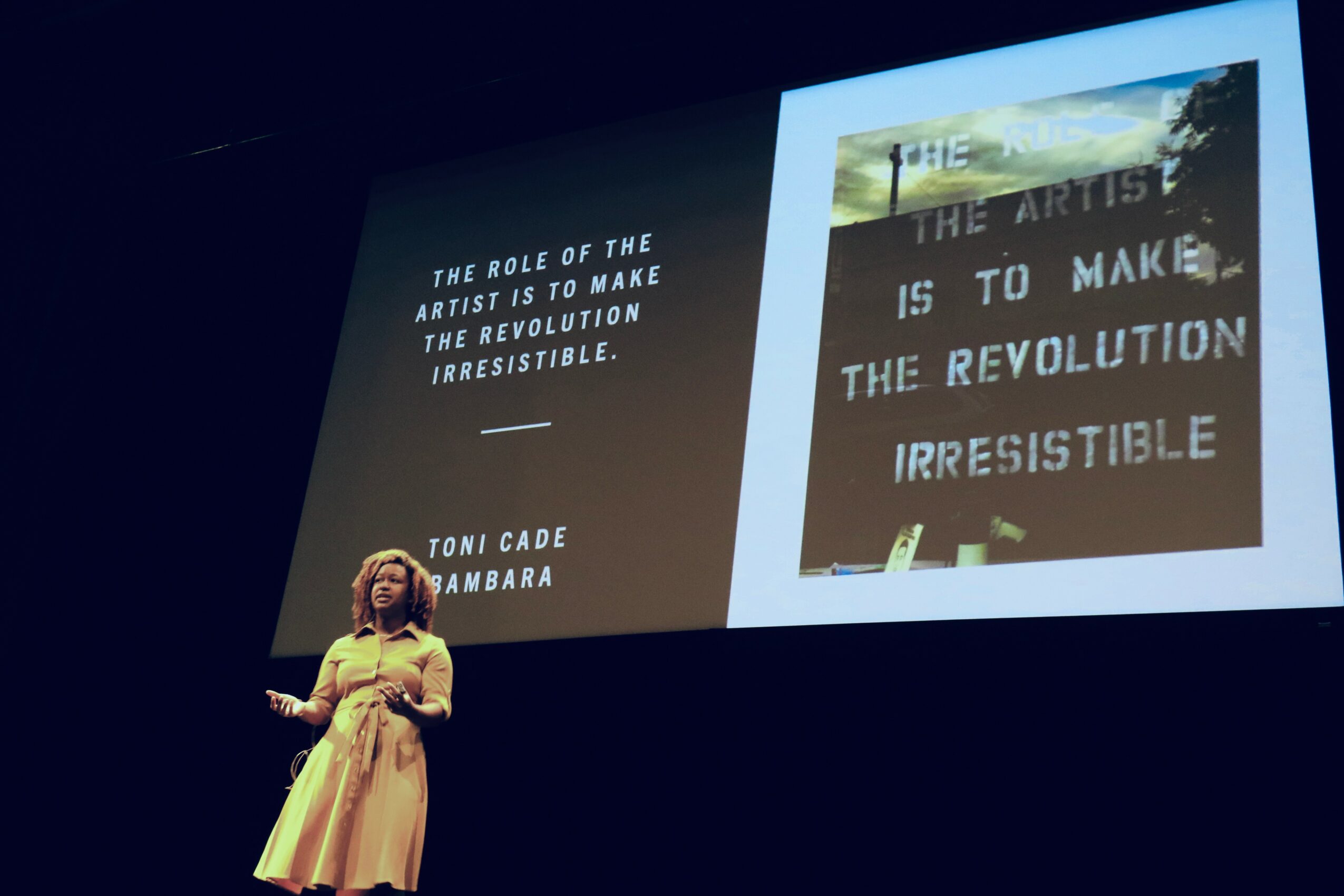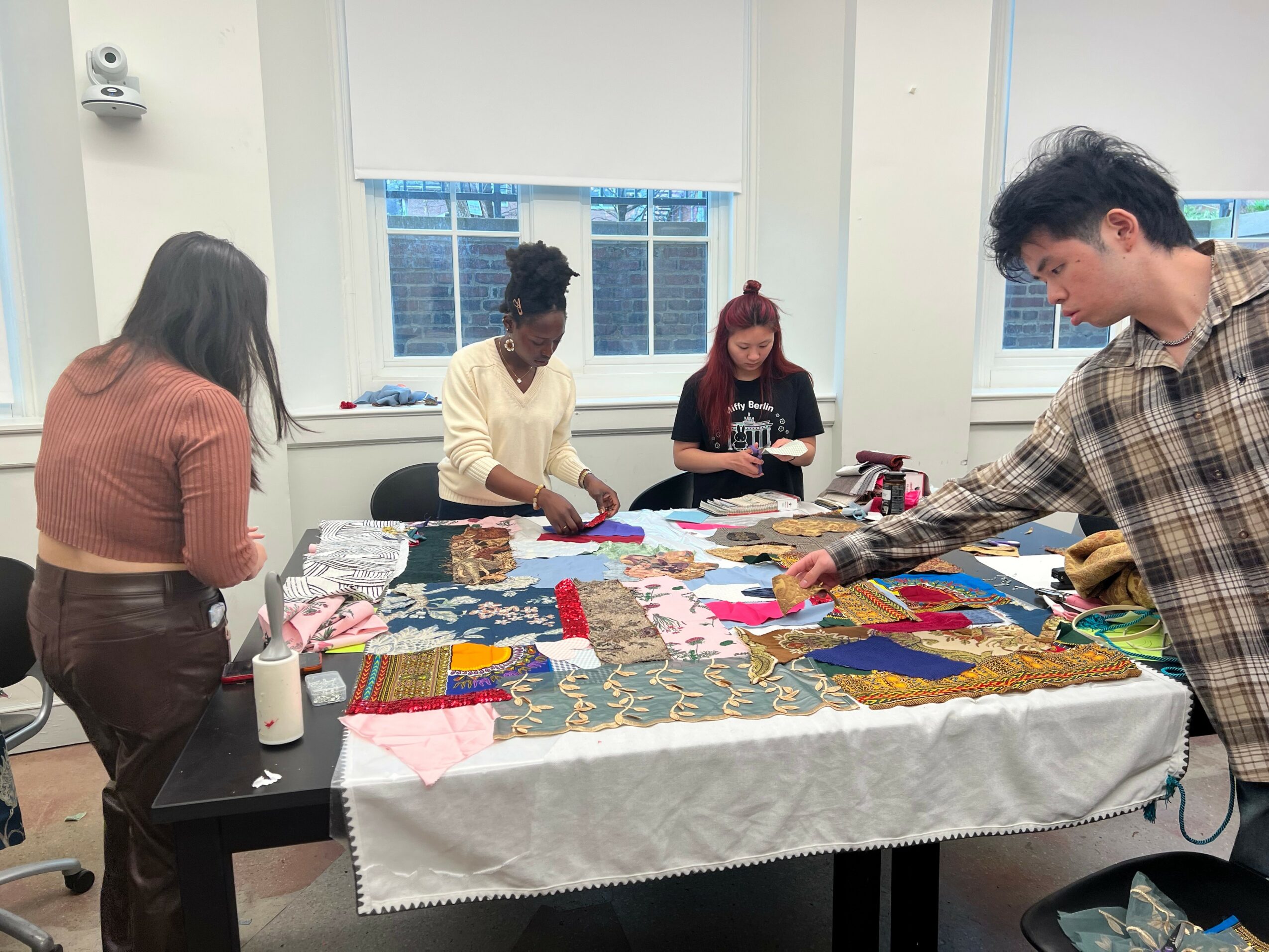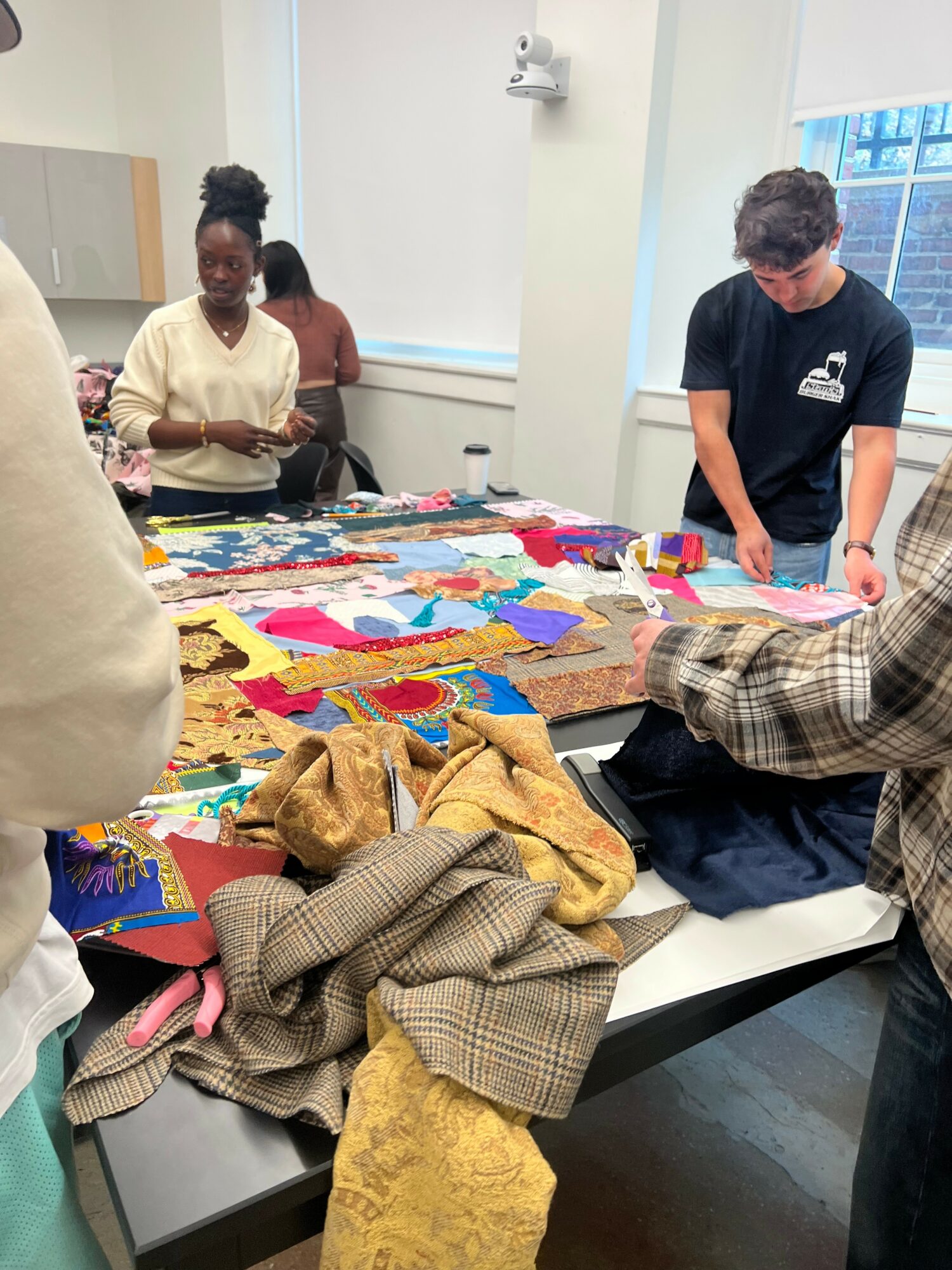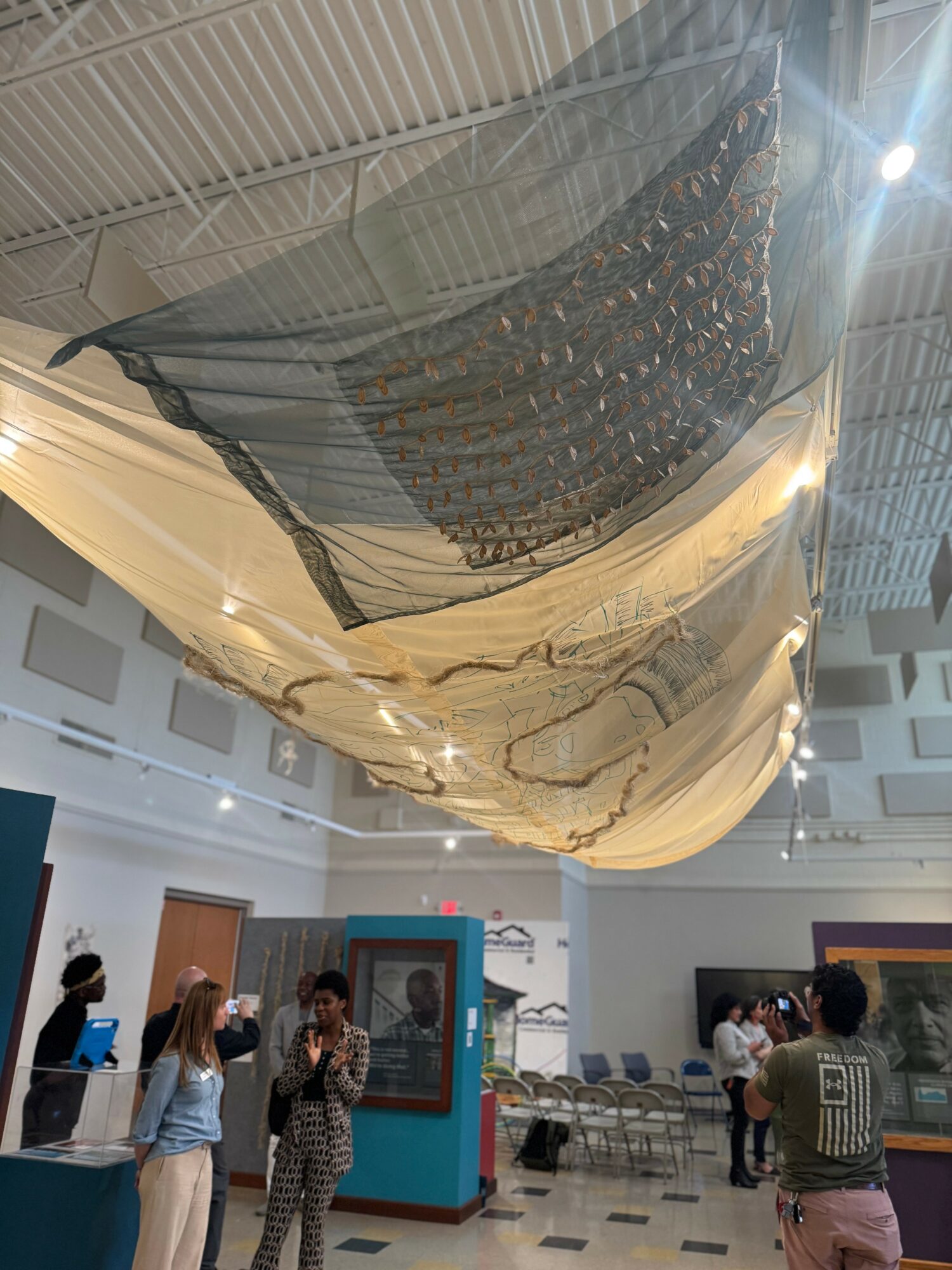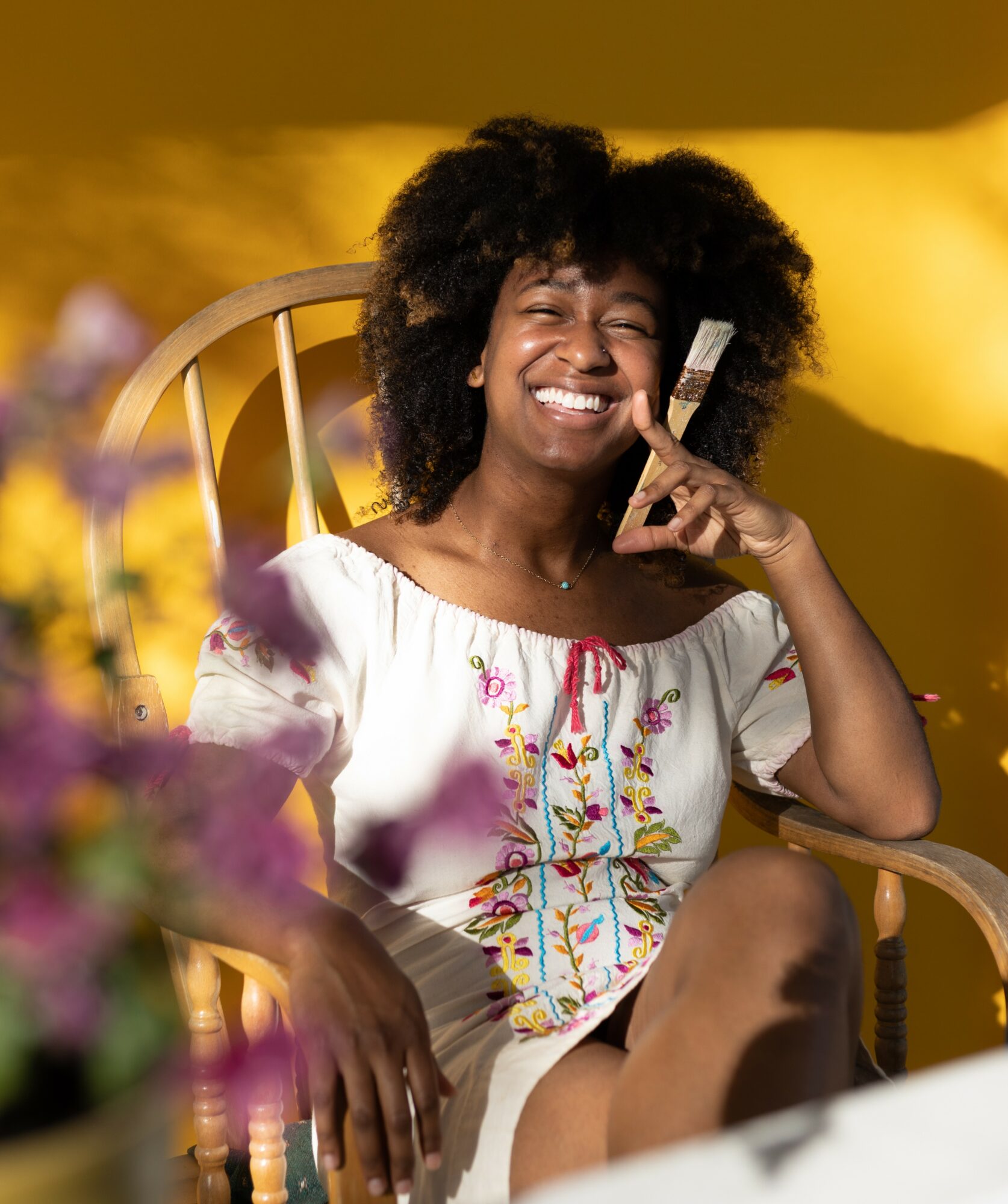

Today we’d like to introduce you to Megan Jordan.
Hi Megan, we’re thrilled to have a chance to learn your story today. So, before we get into specifics, maybe you can briefly walk us through how you got to where you are today?
I have been an artist all my life. My earliest memories of art were drawing with my dad, trying to sketch a horse better than he could. He was really good at realism. At the age of 6, my father taught me macrame and helped me start my own keychain business. He would sell my keychains at the Chrysler auto factory where he worked as a UAW industrial electrician in Huntsville, Alabama. I made about $300 a month as a child in 2001. My desire for social justice blossomed around the same time. I grew up in a historic black church in New Market, Alabama, that was founded by enslaved people many years ago. Many of the congregation members are the very same families from its founding. It was at this church that I learned public speaking and Black liberation stories. I became a storyteller, giving speeches to 1,000 congregation members on a seasonal basis. The excitement of telling stories about Dr. Martin Luther King Jr, Booker T. Washington, and Madame C.J. Walker excited me and enlivened a bug for social justice in me. The hymns we sang had direct roots to negro spirituals of the slavery period and songs of the Civil Rights Movement. The euphoric use of song, music, and dance piqued my interest. When I went to college in 2013 upon taking my first sociology class, I decided I wanted to study the power of art and music in social justice movements. Fast forward to my journey to Nashville..I got accepted to Vanderbilt for a PhD program in Sociology. I dedicated the next eight years of my life to studying the role of artists in social justice causes, the power of art in contentious times of social divides, as well as the psychological and material costs to artists who carve new ways of thinking and being in these times of crisis. During my years of studies, I got involved in my Nashville community, creating murals and bringing art to various social causes in our city, including immigrant and refugee rights, reproductive rights, racial justice, economic justice, and environmental justice. My first mural was the Black Lives Matter street mural on Woodland Street in October 2020, which is still there to this day (surprisingly).
Would you say it’s been a smooth road, and if not what are some of the biggest challenges you’ve faced along the way?
There have been numerous struggles along the way. At Vanderbilt, several of my professors (claiming to be well-meaning) tried to pressure me to quit my PhD program because I was too involved in community. I argued that this is the best way to be. If we really want to know what’s going on in society, we have to be with the people–not cooped up in a dark office with just books. At Vanderbilt, the majority of authority figures and my peers preached prestige and inaccessibility, which was entirely at odds with my thinking of how knowledge should be treated, valued, and shared. I wanted all my work to be public-facing and the most useful it could be to community members from a variety of backgrounds. I guess this was my sentiment because I was a first-generation college student who experienced poverty after the Great Recession ravaged my family and community. Most of my peers had not experienced poverty and were not even Southerners, so being both poor and Southern apparently made me an outsider at a Southern university–as silly as that sounds. It does not make sense to me either. After I got my PhD, it took me two years and many therapy sessions to heal from the trauma and hazing I experienced, and deprogram what I had been taught was valuable research. I threw myself into more arts-based community projects and became myself again.
As you know, we’re big fans of you and your work. For our readers who might not be as familiar what can you tell them about what you do?
Many would say I’m an artist-activist. I have mixed feelings about that term, but it mostly fits. I create art and community engagements to tell stories to connect people to each other and promote healthier ecosystems. I describe my work as ‘creative research and community engagement.’ For me, art is a tool of empowerment, healing, self-expression, empathy, and community connection. I’m known for critiquing social problems in our society with art and community engagements in order to create community-based solutions, because those who are experiencing the worst ills of our society have the best knowledge and tools to get us to the solutions. I have been a painter hosting community workshops and mural activations for the past 9 years. More recently, I became a textile artist and host community tapestry and quilt workshops.
What’s next?
I plan to continue freelancing, bringing ancient alternative of storytelling and community based arts engagements to as many communities as possible to create solutions to our climate crisis and economic inequality. Part of that will be engaging communities in public memory work, because when we remember where we came from, we have a better idea of where we want to go. Remembering the strength of our ancestors during impossible times will strengthen us in navigating and solving our current problems.
Contact Info:
- Website: https://www.megjoart.com/
- Instagram: https://www.instagram.com/meggojojo/?hl=en
- LinkedIn: https://linkedin.com/in/megan-jordan-phd-55a65912a
